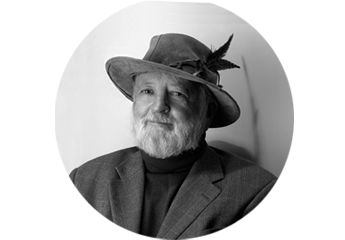It is an astonishing fact that there is a broad road towards nature that has surprisingly few footsteps upon it. All the great religions affirm the presence of a Deity – or a multiplicity of deities – who reigns over all. The universe and all it contains is one expression of the existence of this Presence.
Surely, therefore, there is a basis for religious organisations to take leadership roles in the protection of nature? Nature is in deep trouble and needs their help.
World religious leaders could play a tremendous part in conservation. Hundreds of millions of their followers would listen to what they would say. Surely it would not be too much to ask that the great religions would set aside one day each year as ‘conservation day’ when they would speak in their temples and mosques and cathedral and churches to their people that all of us are involved in the conservation of nature. Just one day a year! In this simple way the religious could collectively become a powerful movement for good in the protection of species and their habitats.
Mohammed and the Buddha and Jesus of the Christian Faiths all sought solace in caves and in solitary places in which to meditate on the great mysteries of human existence. There seems to be a quality in wilderness that allows great spiritual minds to discover what they seek. More reason that religions would want to protect such places.
In a spirit of co-operation between all, a religious world wilderness reserve might be established by the great religions. This undertaking would be a non-contentious issue that would allow religions the opportunity to work in harmony from which all would benefit from such close working together. If strangeness between those who worship in different ways is ever to be eliminated it could start with clerics meeting together in relaxed circumstances – and where better than in a place of striking beauty that is a manifestation of the hand of the Deity?
Religious leaders might like to reflect on giving one day a year to the environment.
In addition they might like to consider entering an adventure together to set aside a wilderness area, free from exploitation. In such a place clerics of all religions could meet and be at ease with each other and know that they are all seeking the same enlightenment and merely travelling along different paths. Nature would clearly benefit too.
(A short extract from the book – Planet Dancing.)
Regards to all.
Patrick
